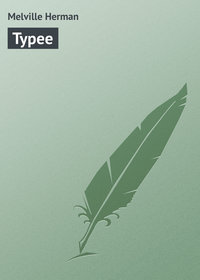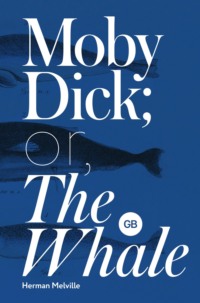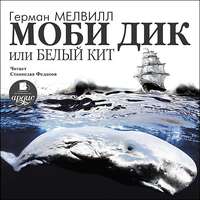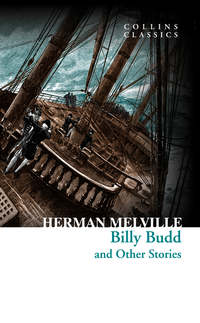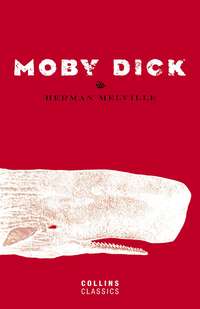
Полная версия
Moby-Dick or, The Whale / Моби Дик, или Белый кит. Книга для чтения на английском языке
Grant it, since you cite it; but, say what you will, there is no real dignity in whaling.
No dignity in whaling? The dignity of our calling the very heavens attest. Cetus is a constellation in the south! No more! Drive down your hat in presence of the Czar, and take it off to Queequeg! No more! I know a man that, in his lifetime, has taken three hundred and fifty whales. I account that man more honourable than that great captain of antiquity who boasted of taking as many walled towns.
And, as for me, if, by any possibility, there be any as yet undiscovered prime thing in me; if I shall ever deserve any real repute in that small but high hushed world which I might not be unreasonably ambitious of; if hereafter I shall do anything that, upon the whole, a man might rather have done than to have left undone; if, at my death, my executors, or more properly my creditors, find any precious MSS[64] in my desk, then here I prospectively ascribe all the honour and the glory to whaling; for a whale-ship was my Yale College and my Harvard.
Chapter XXV. Postscript
In behalf of the dignity of whaling, I would fain advance naught but substantiated facts. But after embattling his facts, an advocate who should wholly suppress a not unreasonable surmise, which might tell eloquently upon his cause – such an advocate, would he not be blameworthy?
It is well known that at the coronation of kings and queens, even modern ones, a certain curious process of seasoning them for their functions is gone through. There is a salt-cellar of state, so called, and there may be a castor of state. How they use the salt, precisely – who knows? Certain I am, however, that a king's head is solemnly oiled at his coronation, even as a head of salad. Can it be, though, that they anoint it with a view of making its interior run well, as they anoint machinery? Much might be ruminated here, concerning the essential dignity of this regal process, because in common life we esteem but meanly and contemptibly a fellow who anoints his hair, and palpably smells of that anointing. In truth, a mature man who uses hair-oil, unless medicinally, that man has probably got a quoggy spot in him somewhere[65]. As a general rule, he can't amount to much in his totality.
But the only thing to be considered here, is this – what kind of oil is used at coronations? Certainly it cannot be olive oil, nor macassar oil, nor castor oil, nor bear's oil, nor train oil, nor cod-liver oil. What then can it possibly be, but sperm oil in its unmanufactured, unpolluted state, the sweetest of all oils?
Think of that, ye loyal Britons! we whalemen supply your kings and queens with coronation stuff!
Chapter XXVI. Knights and Squires
The chief mate of the Pequod was Starbuck, a native of Nantucket, and a Quaker by descent. He was a long, earnest man, and though born on an icy coast, seemed well adapted to endure hot latitudes, his flesh being hard as twice-baked biscuit. Transported to the Indies, his live blood would not spoil like bottled ale. He must have been born in some time of general drought and famine, or upon one of those fast days for which his state is famous. Only some thirty arid summers had he seen; those summers had dried up all his physical superfluousness. But this, his thinness, so to speak, seemed no more the token of wasting anxieties and cares, than it seemed the indication of any bodily blight. It was merely the condensation of the man. He was by no means ill-looking; quite the contrary. His pure tight skin was an excellent fit; and closely wrapped up in it, and embalmed with inner health and strength, like a revivified Egyptian, this Starbuck seemed prepared to endure for long ages to come, and to endure always, as now; for be it Polar snow or torrid sun, like a patent chronometer, his interior vitality was warranted to do well in all climates. Looking into his eyes, you seemed to see there the yet lingering images of those thousand-fold perils he had calmly confronted through life. A staid, steadfast man, whose life for the most part was a telling pantomime of action, and not a tame chapter of sounds. Yet, for all his hardy sobriety and fortitude, there were certain qualities in him which at times affected, and in some cases seemed well-nigh to overbalance all the rest. Uncommonly conscientious for a seaman, and endued with a deep natural reverence, the wild watery loneliness of his life did therefore strongly incline him to superstition; but to that sort of superstition, which in some organisations seems rather to spring, somehow, from intelligence than from ignorance. Outward portents and inward presentiments were his. And if at times these things bent the welded iron of his soul, much more did his far-away domestic memories of his young Cape wife and child tend to bend him still more from the original ruggedness of his nature, and open him still further to those latent influences which, in some honest-hearted men, restrain the gush of dare-devil daring, so often evinced by others in the more perilous vicissitudes of the fishery. “I will have no man in my boat,” said Starbuck, “who is not afraid of a whale.” By this, he seemed to mean, not only that the most reliable and useful courage was that which arises from the fair estimation of the encountered peril, but that an utterly fearless man is a far more dangerous comrade than a coward.
“Ay, ay,” said Stubb, the second mate, “Starbuck, there, is as careful a man as you'll find anywhere in this fishery.” But we shall ere long see what that word ‘careful’ precisely means when used by a man like Stubb, or almost any other whale-hunter.
Starbuck was no crusader after perils; in him courage was not a sentiment; but a thing simply useful to him, and always at hand upon all mortally practical occasions. Besides, he thought, perhaps, that in this business of whaling, courage was one of the great staple outfits of the ship, like her beef and her bread, and not to be foolishly wasted. Wherefore he had no fancy for lowering for whales after sundown; nor for persisting in fighting a fish that too much persisted in fighting him. For, thought Starbuck, I am here in this critical ocean to kill whales for my living, and not to be killed by them for theirs; and that hundreds of men had been so killed Starbuck well knew. What doom was his own father's? Where, in the bottomless deeps, could he find the torn limbs of his brother?
With memories like these in him, and, moreover, given to a certain superstitiousness, as has been said; the courage of this Starbuck which could, nevertheless, still flourish, must indeed have been extreme. But it was not in reasonable nature that a man so organised, and with such terrible experiences and remembrances as he had; it was not in nature that these things should fail in latently engendering an element in him, which, under suitable circumstances, would break out from its confinement, and burn all his courage up. And brave as he might be, it was that sort of bravery chiefly, visible in some intrepid men, which, while generally abiding firm in the conflict with seas, or winds, or whales, or any of the ordinary irrational horrors of the world, yet cannot withstand those more terrific, because more spiritual terrors, which sometimes menace you from the concentrating brow of an enraged and mighty man.
But were the coming narrative to reveal, in any instance, the complete abasement of poor Starbuck's fortitude, scarce might I have the heart to write it; for it is a thing most sorrowful, nay shocking, to expose the fall of valour in the soul. Men may seem detestable as joint-stock companies[66] and nations; knaves, fools, and murderers there may be; men may have mean and meagre faces; but man, in the ideal, is so noble and so sparkling, such a grand and glowing creature, that over any ignominious blemish in him all his fellows should run to throw their costliest robes. That immaculate manliness we feel within ourselves, so far within us, that it remains intact though all the outer character seem gone, bleeds with keenest anguish at the undraped spectacle of a valour-ruined man. Nor can piety itself, at such a shameful sight, completely stifle her upbraidings against the permitting stars. But this august dignity I treat of, is not the dignity of kings and robes, but that abounding dignity which has no robed investiture. Thou shalt see it shining in the arm that wields a pick or drives a spike; that democratic dignity which, on all hands, radiates without end from God; Himself! The great God absolute! The centre and circumference of all democracy! His omnipresence, our divine equality!
If, then, to meanest mariners, and renegades and castaways, I shall hereafter ascribe high qualities, though dark; weave round them tragic graces; if even the most mournful, perchance the most abased, among them all, shall at times lift himself to the exalted mounts; if I shall touch that workman's arm with some ethereal light; if I shall spread a rainbow over his disastrous set of sun; then against all mortal critics bear me out in it, thou just Spirit of Equality, which hast spread one royal mantle of humanity over all my kind! Bear me out in it, thou great democratic God! who didst not refuse to the swart convict, Bunyan[67], the pale, poetic pearl; Thou who didst clothe with doubly hammered leaves of finest gold, the stumped and paupered arm of old Cervantes; Thou who didst pick up Andrew Jackson[68] from the pebbles; who didst hurl him upon a war-horse; who didst thunder him higher than a throne! Thou who, in all Thy mighty, earthly marchings, ever cullest Thy selectest champions from the kingly commons; bear me out in it, O God!
Chapter XXVII. Knights and Squires
Stubb was the second mate. He was a native of Cape Cod; and hence, according to local usage, was called a Cape-Cod-man. A happy-go-lucky; neither craven nor valiant; taking perils as they came with an indifferent air; and while engaged in the most imminent crisis of the chase, toiling away, calm and collected as a journeyman joiner engaged for the year. Good-humoured, easy, and careless, he presided over his whale-boat as if the most deadly encounter were but a dinner, and his crew all invited guests. He was as particular about the comfortable arrangement of his part of the boat, as an old stage-driver is about the snugness of his box. When close to the whale, in the very death-lock of the fight, he handled his unpitying lance coolly and off-handedly, as a whistling tinker his hammer. He would hum over his old rigadig tunes while flank and flank with the most exasperated monster. Long usage had, for this Stubb, converted the jaws of death into an easy-chair. What he thought of death itself, there is no telling. Whether he ever thought of it at all, might be a question; but, if he ever did chance to cast his mind that way after a comfortable dinner, no doubt, like a good sailor, he took it to be a sort of call of the watch to tumble aloft, and bestir themselves there, about something which he would find out when he obeyed the order, and not sooner.
What, perhaps, with other things, made Stubb such an easy-going, unfearing man, so cheerily trudging off with the burden of life in a world full of grave peddlers, all bowed to the ground with their packs; what helped to bring about that almost impious good-humour of his; that thing must have been his pipe. For, like his nose, his short, black little pipe was one of the regular features of his face. You would almost as soon have expected him to turn out of his bunk without his nose as without his pipe. He kept a whole row of pipes there ready loaded, stuck in a rack, within easy reach of his hand; and, whenever he turned in, he smoked them all out in succession, lighting one from the other to the end of the chapter; then loading them again to be in readiness anew. For, when Stubb dressed, instead of first putting his legs into his trowsers, he put his pipe into his mouth.
I say this continual smoking must have been one cause, at least, of his peculiar disposition; for everyone knows that this earthly air, whether ashore or afloat, is terribly infected with the nameless miseries of the numberless mortals who have died exhaling it; and as in time of the cholera, some people go about with a camphorated handkerchief to their mouths; so, likewise, against all mortal tribulations, Stubb's tobacco smoke might have operated as a sort of disinfecting agent.
The third mate was Flask, a native of Tisbury, in Martha's Vineyard. A short, stout, ruddy young fellow, very pugnacious concerning whales, who somehow seemed to think that the great leviathans had personally and hereditarily affronted him; and therefore it was a sort of point of honour with him, to destroy them whenever encountered. So utterly lost was he to all sense of reverence for the many marvels of their majestic bulk and mystic ways; and so dead to anything like an apprehension of any possible danger from encountering them; that in his poor opinion, the wondrous whale was but a species of magnified mouse, or at least water-rat, requiring only a little circumvention and some small application of time and trouble in order to kill and boil. This ignorant, unconscious fearlessness of his made him a little waggish in the matter of whales; he followed these fish for the fun of it; and a three years’ voyage round Cape Horn was only a jolly joke that lasted that length of time. As a carpenter's nails are divided into wrought nails and cut nails; so mankind may be similarly divided. Little Flask was one of the wrought ones; made to clinch tight and last long. They called him King-Post on board of the Pequod; because, in form, he could be well likened to the short, square timber known by that name in Arctic whalers; and which by the means of many radiating side timbers inserted into it, served to brace the ship against the icy concussions of those battering seas.
Now these three mates – Starbuck, Stubb, and Flask – were momentous men. They it was who by universal prescription commanded three of the Pequod's boats as headsmen. In that grand order of battle in which Captain Ahab would probably marshal his forces to descend on the whales, these three headsmen were as captains of companies. Or, being armed with their long keen whaling-spears, they were as a picked trio of lancers; even as the harpooneers were flingers of javelins.
And since in this famous fishery, each mate or headsman, like a Gothic knight of old, is always accompanied by his boat-steerer or harpooneer, who in certain conjunctures provides him with a fresh lance, when the former one has been badly twisted, or elbowed in the assault; and moreover, as there generally subsists between the two a close intimacy and friendliness; it is therefore but meet, that in this place we set down who the Pequod's harpooneers were, and to what headsman each of them belonged.
First of all was Queequeg, whom Starbuck, the chief mate, had selected for his squire. But Queequeg is already known.
Next was Tashtego, an unmixed Indian from Gay Head, the most westerly promontory of Martha's Vineyard, where there still exists the last remnant of a village of red men, which has long supplied the neighbouring island of Nantucket with many of her most daring harpooneers. In the fishery, they usually go by the generic name of Gay-Headers. Tashtego's long, lean, sable hair, his high cheek-bones, and black rounding eyes – for an Indian, Oriental in their largeness, but Antarctic in their glittering expression – all this sufficiently proclaimed him an inheritor of the unvitiated blood of those proud warrior hunters, who, in quest of the great New England moose, had scoured, bow in hand, the aboriginal forests of the main. But no longer snuffing in the trail of the wild beasts of the woodland, Tashtego now hunted in the wake of the great whales of the sea; the unerring harpoon of the son fitly replacing the infallible arrow of the sires. To look at the tawny brawn of his lithe snaky limbs, you would almost have credited the superstitions of some of the earlier Puritans, and half-believed this wild Indian to be a son of the Prince of the Powers of the Air. Tashtego was Stubb the second mate's squire.
Third among the harpooneers was Daggoo, a gigantic, coal-black negro-savage, with a lion-like tread – an Ahasuerus[69] to behold. Suspended from his ears were two golden hoops, so large that the sailors called them ring-bolts, and would talk of securing the topsail halyards to them. In his youth Daggoo had voluntarily shipped on board of a whaler, lying in a lonely bay on his native coast. And never having been anywhere in the world but in Africa, Nantucket, and the pagan harbours most frequented by whalemen; and having now led for many years the bold life of the fishery in the ships of owners uncommonly heedful of what manner of men they shipped; Daggoo retained all his barbaric virtues, and erect as a giraffe, moved about the decks in all the pomp of six feet five in his socks. There was a corporeal humility in looking up at him; and a white man standing before him seemed a white flag come to beg truce of a fortress. Curious to tell, this imperial negro, Ahasuerus Daggoo, was the squire of little Flask, who looked like a chess-man beside him. As for the residue of the Pequod's company, be it said, that at the present day not one in two of the many thousand men before the mast employed in the American whale-fishery are Americans born, though pretty nearly all the officers are. Herein it is the same with the American whale-fishery as with the American army and military and merchant navies, and the engineering forces employed in the construction of the American canals and railroads. The same, I say, because in all these cases the native American liberally provides the brains, the rest of the world as generously supplying the muscles. No small number of these whaling seamen belong to the Azores, where the outward-bound Nantucket whalers frequently touch to augment their crews from the hardy peasants of those rocky shores. In like manner, the Greenland whalers sailing out of Hull or London put in at the Shetland Islands, to receive the full complement of their crew. Upon the passage homeward, they drop them there again. How it is, there is no telling, but Islanders seem to make the best whalemen. They were nearly all Islanders in the Pequod, ‘Isolatoes’ too, I call such, not acknowledging the common continent of men, but each Isolato living on a separate continent of his own. Yet now, federated along one keel, what a set these Isolatoes were! An Anacharsis Clootz[70] deputation from all the isles of the sea, and all the ends of the earth, accompanying Old Ahab in the Pequod to lay the world's grievances before that bar from which not very many of them ever come back. Black Little Pip – he never did – oh, no! he went before. Poor Alabama boy! On the grim Pequod's forecastle, ye shall ere long see him, beating his tambourine; prelusive of the eternal time, when sent for, to the great quarter-deck on high, he was bid strike in with angels, and beat his tambourine in glory; called a coward here, hailed a hero there!
Chapter XXVIII. Ahab
For several days after leaving Nantucket, nothing above hatches was seen of Captain Ahab. The mates regularly relieved each other at the watches, and for aught that could be seen to the contrary, they seemed to be the only commanders of the ship; only they sometimes issued from the cabin with orders so sudden and peremptory, that after all it was plain they but commanded vicariously. Yes, their supreme lord and dictator was there, though hitherto unseen by any eyes not permitted to penetrate into the now sacred retreat of the cabin.
Every time I ascended to the deck from my watches below, I instantly gazed aft to mark if any strange face were visible; for my first vague disquietude touching the unknown captain, now in the seclusion of the sea, became almost a perturbation. This was strangely heightened at times by the ragged Elijah's diabolical incoherences uninvitingly recurring to me, with a subtle energy I could not have before conceived of. But poorly could I withstand them, much as in other moods I was almost ready to smile at the solemn whimsicalities of that outlandish prophet of the wharves. But whatever it was of apprehensiveness or uneasiness – to call it so – which I felt, yet whenever I came to look about me in the ship, it seemed against all warranty to cherish such emotions. For though the harpooneers, with the great body of the crew, were a far more barbaric, heathenish, and motley set than any of the tame merchant-ship companies which my previous experiences had made me acquainted with, still I ascribed this – and rightly ascribed it – to the fierce uniqueness of the very nature of that wild Scandinavian vocation in which I had so abandonedly embarked. But it was especially the aspect of the three chief officers of the ship, the mates, which was most forcibly calculated to allay these colourless misgivings, and induce confidence and cheerfulness in every presentment of the voyage. Three better, more likely sea-officers and men, each in his own different way, could not readily be found, and they were every one of them Americans; a Nantucketer, a Vineyarder, a Cape man. Now, it being Christmas when the ship shot from out her harbour, for a space we had biting Polar weather, though all the time running away from it to the southward; and by every degree and minute of latitude which we sailed, gradually leaving that merciless winter, and all its intolerable weather behind us. It was one of those less lowering, but still gray and gloomy enough mornings of the transition, when with a fair wind the ship was rushing through the water with a vindictive sort of leaping and melancholy rapidity, that as I mounted to the deck at the call of the forenoon watch, so soon as I levelled my glance toward the taffrail, foreboding shivers ran over me. Reality outran apprehension; Captain Ahab stood upon his quarter-deck.
There seemed no sign of common bodily illness about him, nor of the recovery from any. He looked like a man cut away from the stake, when the fire has overrunningly wasted all the limbs without consuming them, or taking away one particle from their compacted aged robustness. His whole high, broad form, seemed made of solid bronze, and shaped in an unalterable mould, like Cellini's cast Perseus. Threading its way out from among his gray hairs, and continuing right down one side of his tawny scorched face and neck, till it disappeared in his clothing, you saw a slender rod-like mark, lividly whitish. It resembled that perpendicular seam sometimes made in the straight, lofty trunk of a great tree, when the upper lightning tearingly darts down it, and without wrenching a single twig, peels and grooves out the bark from top to bottom, ere running off into the soil, leaving the tree still greenly alive, but branded. Whether that mark was born with him, or whether it was the scar left by some desperate wound, no one could certainly say. By some tacit consent, throughout the voyage little or no allusion was made to it, especially by the mates. But once Tashtego's senior, an old Gay-Head Indian among the crew, superstitiously asserted that not till he was full forty years old did Ahab become that way branded, and then it came upon him, not in the fury of any mortal fray, but in an elemental strife at sea. Yet, this wild hint seemed inferentially negatived by what a gray Manxman insinuated, an old sepulchral man, who, having never before sailed out of Nantucket, had never ere this laid eye upon wild Ahab. Nevertheless, the old sea-traditions, the immemorial credulities, popularly invested this old Manxman with preternatural powers of discernment. So that no white sailor seriously contradicted him when he said that if ever Captain Ahab should be tranquilly laid out – which might hardly come to pass, so he muttered – then, whoever should do that last office for the dead would find a birth-mark on him from crown to sole.
So powerfully did the whole grim aspect of Ahab affect me, and the livid brand which streaked it, that for the first few moments I hardly noted that not a little of this overbearing grimness was owing to the barbaric white leg upon which he partly stood. It had previously come to me that this ivory leg had at sea been fashioned from the polished bone of the sperm whale's jaw. “Ay, he was dismasted off Japan,” said the old Gay-Head Indian once; “but like his dismasted craft, he shipped another mast without coming home for it. He has a quiver of 'em.”





